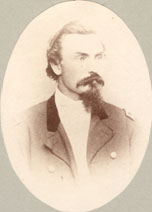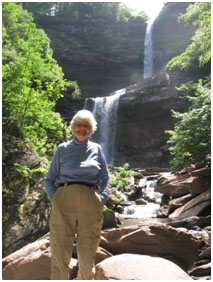Betsy Carpenter on “Elias Wright: Teacher, Military Leader, Surveyor Extraordinaire”

We met Civil War Brevet Brigadier General Elias Wright (1830-1901), a Captain in Company A, 4th New Jersey Volunteer Infantry Regiment, who fought in the Peninsula Campaign, Second Bull Run, South Mountain, Fredericksburg, and Chancellorsville, and who went on to serve as Colonel of the 10th United States Colored Troops at the Battle of Fort Fisher. Betsy described his contributions to South Jersey, including his 30-year collaboration with Joseph Wharton that resulted in his comprehensive survey of the initial 96,000 acres that formed the nucleus of today’s Wharton State Forest, the state’s largest forest. Originally a native of Durham, New York, he married Julia Ashley of Port Republic in 1855, lived in Weymouth Furnace, Elwood, Batsto, and finally Atlantic City where he died.

Betsy Carpenter, a long-time resident of New Jersey’s Pinelands National Reserve, has served as Public Programs Coordinator for this State’s Pinelands Commission, and today continues as a historic researcher and freelance writer.
